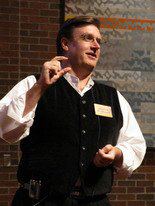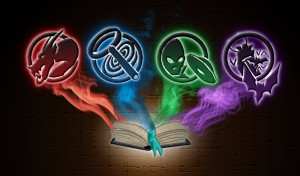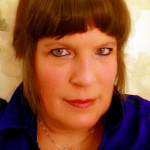When I was younger and less experienced, the joy of writing came from
building worlds and characters, then diving headlong into the story.
Full steam ahead and damn the consequences! Don’t get me wrong, I would
have a general idea of the plot in advance, but I was in no way married
to it. Or engaged. We were kind of dating, but really we were just
friends. As writing strategies went, it was loads of fun. Not terribly
effective, but fun.
As a not-so-surprising consequence, my writing suffered from all the
same problems that discovery writers typically face. Drafting took
forever as I would too often follow random bursts of “inspiration” down
a dead end path. I wasted scores of hours hunting down the perfect
moment for the finer corrections needed to justify and foreshadow an
ever evolving plot line. That’s not even touching the large scale
structural edits my meandering style necessitated. When combined with my
writer’s ADD, I’ve left many partially complete and messy manuscripts in
my wake. Looking back, I may choose to salvage a few of those worlds,
but probably scrap the prose and start again. It’d be easier than going
back and editing the mess into something publishable.
Discovery writing worked fine when I was a hobbyist. I was having fun,
and that was all that mattered. However, as I started considering a
writing career seriously, I recognized that I needed to change my ways
if I had any hope of making a living at writing. Most publishers and
readers don’t have the patience to wait years between manuscripts. I
needed to become more efficient at taking a novel from concept to a
completed work. Additionally, I needed to become more consistent with
the quality of my early drafts and more intricate with my plots. All of
which is really hard to do on the fly. As much as I hated to admit it, I
needed to outline.
It took a while to convince myself that outlining wouldn’t ruin all the
fun, but once I had, I began searching the Internet and my local
bookstores for advice. Published authors who had something to say about
outlining seemed to focus on story structure rather than the actual,
mechanical process of representing my thoughts and plans on paper. When
I reached out to my friends in the writing community, most everyone
seemed baffled by my questions. What do you mean you don’t know how to
outline? You just do it, right? Eventually I grew so embarrassed and
self-conscious that I stopped asking and started experimenting.
It took a while and many failed attempts, but eventually I ended up
settling on a graphical approach. Being an engineer by training and
trade, I was used to analyzing graphs and charts quickly. By plotting
story intensity versus time in story, I literally drew the shape of my
novel and labeled the scenes, reversals, twists, and foreshadowing. In
so doing, I was able to easily see the points where the action would
become overwhelming, or the narrative too slow to drive reader interest.
With a little tinkering and a comprehensive symbolic guide, I soon was
able to simply and clearly express complex thoughts and relationships of
tension and structure.
It worked well, but the results felt… mechanical. My plots were
technically sound, but I was missing something crucial to the very
nature of story. I understood the lack on an instinctive level, but
couldn’t put words to the feeling. It wasn’t until I sat down and read
through David Farland’s Million Dollar Outlines that I figured out what
I was missing.
While my discovery written works were erratic and often flawed, they did
have one very important thing going for them. They were passionate,
driven by emotion. When I tried to refine my structure, I was treating
my work like a science, not an art.
Farland’s book taught me that readers are fundamentally seeking an
emotional experience. They want to feel the heart pounding thrill of
overthrowing an empire or the sweet poignancy of a passionate first
kiss. Reading is an emotional exercise, a place in which they can
practice facing the world while still safe from the consequences of
defying totalitarian governments or risking one’s heart with potential
rejection. If your work doesn’t grab your readers’ heart strings and
pull, they won’t feel the satisfaction of a story well told. No matter
how technically sound your work is, Farland argued, you can’t forget the
importance of a balanced and powerful emotional journey.
So, I sat down and created a color code for all the emotional beats I
could think of, eventually refining the list down to ten key emotions. I
then began coloring in the symbols I had been using for my graphs. My
plot’s problem points began to pop out to me almost immediately.
I was planning a science fiction spy thriller, so I needed both drama
and action/adventure beats to support the story. However, I had decided
early on to focus on the adventure plot in order to help me maintain the
thriller pacing. And yet, I had planned to start with a drama beat.
Well, that wouldn’t do, so I rearranged the early plot structure to pull
the adventure and wonder forward while pushing the drama and mystery
back a bit deeper. Furthermore, there were several places where the
story descended into drama for a time, without a drop of action to be
found. I needed those sections to support later events, but was able to
add a few carefully chosen explosions and fight scenes to carry the
tension and pacing.
Perhaps the biggest problem yet, the climax was the wrong sort of
emotional payoff for the story as planned. Not completely broken, but
half wrong. What I really had was two plot lines that I was trying to
shoehorn into a single climax. By splitting them up and resolving the
subservient plot line with an appropriately emotionally satisfying
climax in the big middle, I was able to do both stories the justice they
deserved. I sat back and examined my plans. The plot wasn’t perfect, but
it was much better. Balanced. Good enough for me to start writing and
iron out some of the details in-situ.
I don’t think I’ll ever be the sort of writer who creates a 200 page
outline. That style is too rigid for my tastes. Even though I’ve been
spending a lot more time preplanning recently, I still do have faith in
the emotionally driven mad-man who loves to dive into the trenches and
set things on fire. I just have a more logical and deliberate part of me
in charge of keeping the other guy from wandering off after a shiny new
idea. In the end, I believe both aspects will be essential to my
writing. The trick will just be finding the optimal balance between the
two. David Farland’s Million Dollar Outlines was what I needed for the
technical side of my brain to understand what my passionate self knew
all too well. You can’t just outline the plot, you must also work out
how you intend to grab your readers by the heart strings and pull.





